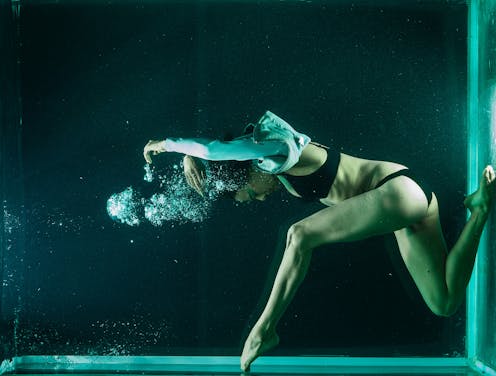How do we remake ourselves after unravelling? Plunge into life and pay attention, suggests Deborah Levy's mesmerising new work
- Written by Jane Gleeson-White, Adjunct Lecturer, English and Creative Writing, UNSW Canberra, UNSW Sydney

The opening sentence of Deborah Levy’s new novel August Blue[1] contains the germ of the whole: “I first saw her in a flea market in Athens buying two mechanical dancing horses.” Its simplicity and specificity are classic Levy – and yet it’s loaded with mystery. Who is this woman? Why mechanical animals? Why horses? Why two? Why dancing?
In this book, as compact and artfully worked as a sonnet, all these questions are answered. Or, more accurately – because Levy prefers questions to answers – they are played with, teased out, turned over.
Review: August Blue – Deborah Levy (Hamish Hamilton)

















